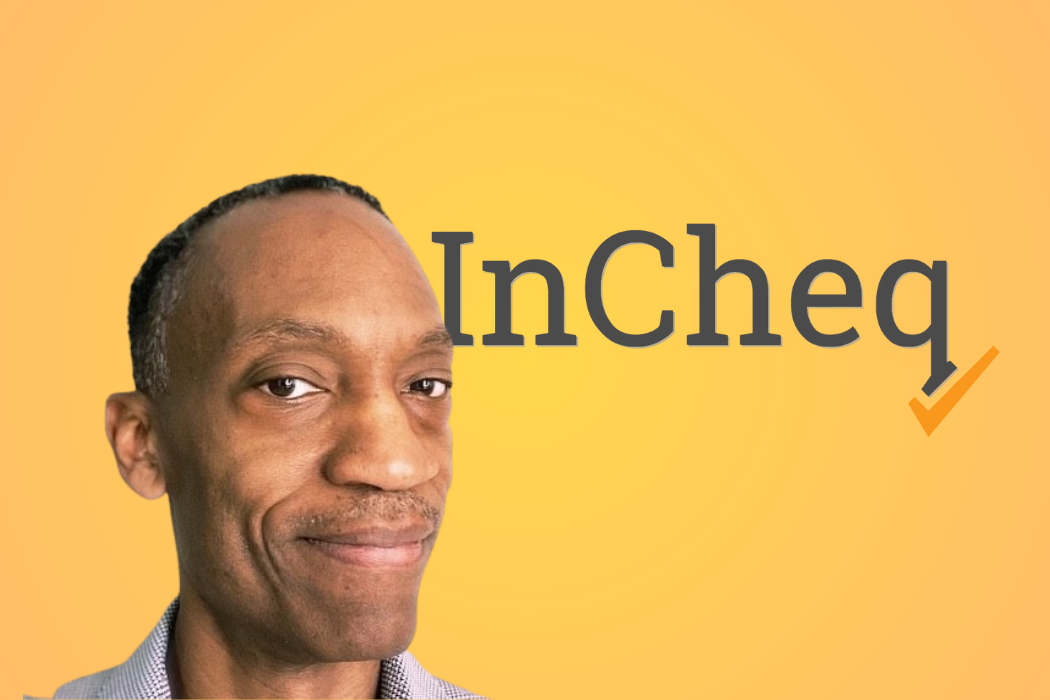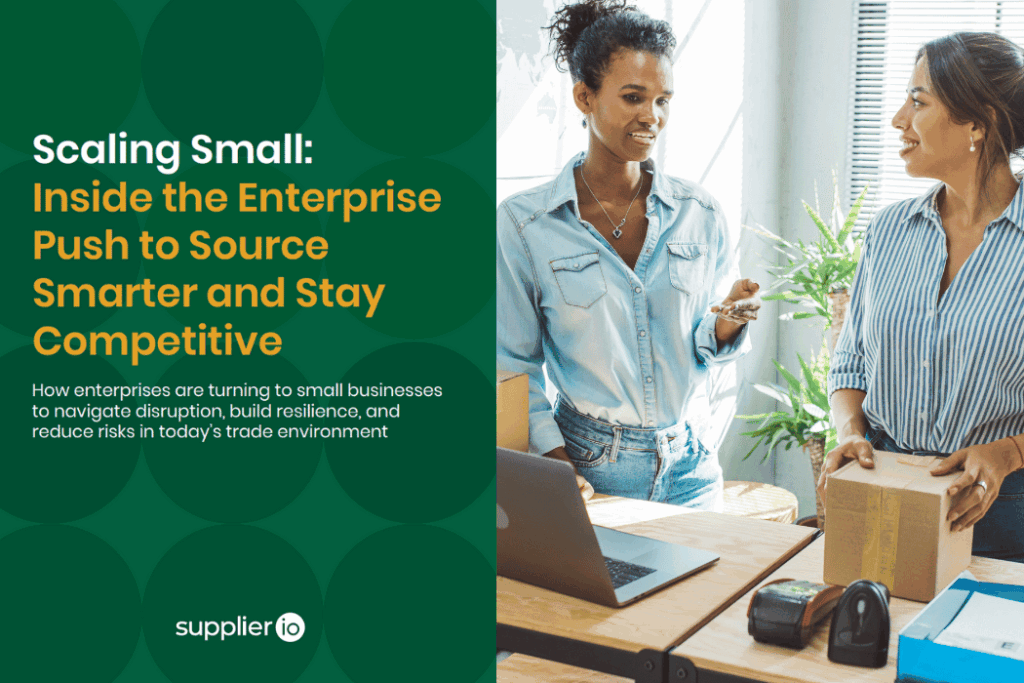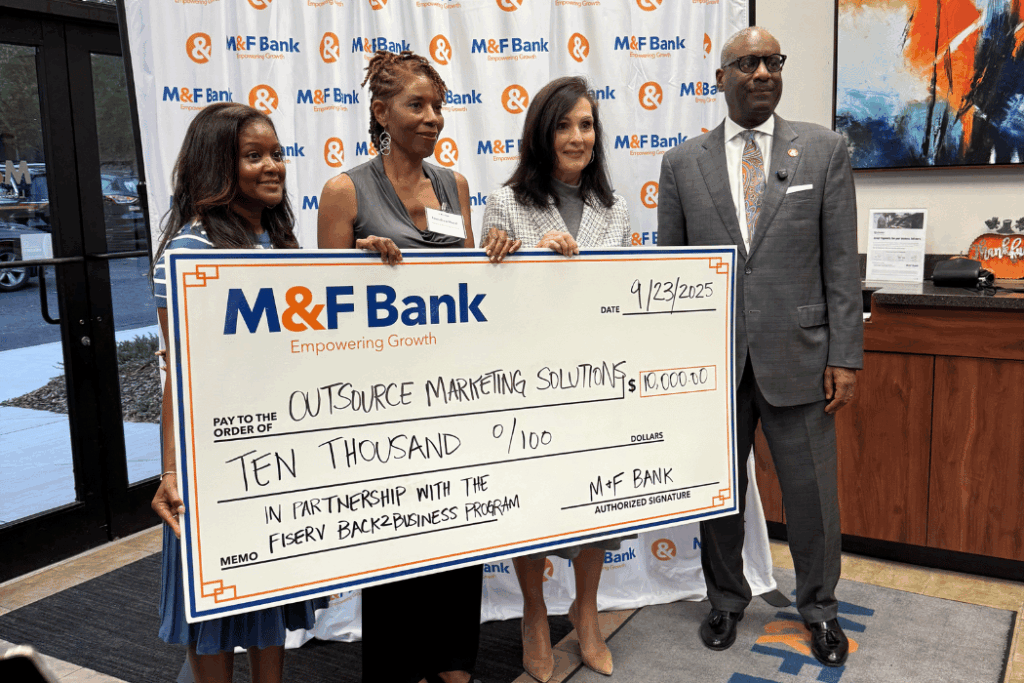
When a longtime client managing 35 industrial systems asked Keith Lambert if there was a way to verify that technicians actually climbed the ladder to collect critical data from equipment platforms, a lightbulb went off. After three decades in the pollution control industry, Lambert recognized something fundamental: manufacturing facilities desperately needed proof of task completion, not just checklists.
That conversation sparked InCheq, a mobile-first task management platform now serving industry giants like Tesla, Honda, Toyota, and Mission Foods. But Lambert’s journey to becoming an entrepreneur in manufacturing technology wasn’t just about identifying a market gap; it was about overcoming decades of surprised looks and proving that innovation knows no color.
From Thermal Oxidizers to Digital Innovation
Lambert’s path into manufacturing technology began in 1990 in New Jersey, working on thermal oxidizers, the equipment that destroys the paint fumes when a vehicle is painted. Over 35 years, he mastered the design and sale of pollution control systems, eventually becoming a principal at his previous company.
Twelve years ago, Lambert took the entrepreneurial leap, founding Oxidizers, Inc. Today, Oxidizers operates across 450 industrial sites with employees from California to New York, generating multi-million-dollar projects. The company recently completed a $1.2 million project with just 24 hours’ notice—the kind of trust Lambert has built through consistent delivery.
“When clients realize they can call on you, that’s where color goes away,” Lambert explains. “That’s where being a minority goes away. Those are the battlefields that we, as people of color, are constantly navigating, disproving stereotypes and proving who we truly are.”
The Crisis Driving Manufacturing Digital Transformation
Lambert didn’t create InCheq simply because mobile technology was trendy. He identified a critical problem threatening the entire manufacturing sector: the loss of institutional knowledge.
“With the amount of turnover right now and generational retirement, we’re losing knowledge daily,” Lambert emphasizes. “Once you have equipment that’s been meticulously maintained, where everyone knows the ins and outs, InCheq helps you keep that inherited knowledge.”
He recalls a recent client call: “I’m new to this position and I know nothing about the equipment I’m supposed to be taking care of.” This real-world scenario illustrates why manufacturing digital transformation must be accessible enough for workers to capture and retrieve critical data seamlessly.
InCheq addresses this through multiple verification methods, QR code scanning, beacon proximity detection, photo documentation, ensuring that maintenance tasks are completed and knowledge is preserved for future generations.
Breaking Barriers as a Black Entrepreneur in Manufacturing Technology
Establishing credibility as a Black founder in both technology and manufacturing, two industries historically lacking diversity, required Lambert to navigate constant skepticism.
“I’d say in the real world, I’ve had to deal with a lot of surprised looks,” Lambert admits. “‘You designed this piece of equipment?’ ‘You’re the president and owner of this company?’ It’s just one of those things that, thankfully, because I’ve been in the industry so long, you get used to.”
Rather than letting these encounters diminish his confidence, Lambert built an ironclad reputation through results. When clients need miracles pulled off, they call him. When million-dollar projects require immediate turnaround, his name comes up first.
“I always invite it,” he says of the initial skepticism. “I’ve had handshakes where people go, ‘Wait, this is a how many million-dollar company? And you started it, and you run it?’ Yes.”
The Entrepreneurial Mindset: From Employee to Employer
Lambert’s entrepreneurial foundation was laid in childhood. His father worked a full-time job while pursuing side projects, and his mother shared that same entrepreneurial spirit. The work ethic was clear: get up, work hard, and learn every piece of equipment inside and out.
“My dad drilled into my sister and me that before you install software, read the entire manual,” Lambert recalls. “That’s the way we grew up.”
But mindset alone wasn’t enough; Lambert also had to embrace failure. At high school reunions, friends still laugh about how he constantly made and sold peculiar gadgets assembled from LEDs, switches, and motors from his father’s electronics company.
The crucial turning point came at age 16 or 17 when Lambert took stock of his strengths and weaknesses. He wasn’t a stellar student. He played basketball and baseball but wasn’t going pro. However, he had a decent mechanical mind.
“So much of our society is ‘You can’t. Don’t try. Stay in that box,'” Lambert reflects. “I had to come to grips with who I was and start thinking: How can I use the skills I have?”
For aspiring Black entrepreneurs in manufacturing or technology, Lambert’s advice is straightforward: change your mindset, take small steps, and realize that shifting from employee to employer isn’t one giant leap; it’s a series of manageable moves.
Leveraging Supplier Diversity Programs and Minority Business Networks
Lambert initially resisted registering as a minority business enterprise, uncomfortable with the stigma that he might be getting an unfair advantage.
“All I want is a seat at the table,” he emphasizes.
His Canadian business partner, at the time, encouraged him to explore certification, and as Lambert interacted with organizations like the National Minority Supplier Development Council (NMSDC), his perspective shifted.
“It really is about opening opportunities. And then it’s about what you do with those opportunities,” he explains.
Two years ago, that decision paid off when a Toyota representative called out of the blue: “I got your name and information from the NMSDC.” That connection led to a significant new client relationship that might never have materialized otherwise.
“If I hadn’t gone to that show and said, ‘Hey, I’m here. I am a diverse supplier in a niche market,’ I would not have gotten that new leg into Toyota,” Lambert acknowledges.
Now, Lambert is actively contributing back. At this year’s NMSDC conference, InCheq is offering free scavenger hunts and interactive activities to boost engagement among attendees and exhibitors.
“Whether we like it or not, everything associated with diversity is under attack now,” Lambert notes. “If anything I can do can help along those lines, it’s my responsibility to make it happen.”
The Future of Mobile-First Manufacturing Solutions
Lambert envisions a dramatic shift in how manufacturing facilities operate over the next five years, particularly with the integration of artificial intelligence and machine learning.
“There’s going to be a massive shift from desktop, tablet, and laptops,” he predicts. “We’re going to use our mobile devices in so many additional ways to gather information, get answers, get quick data, and confirm things are completed.”
The challenge Lambert sees, and that InCheq aims to solve, is preserving institutional knowledge across generational transitions. When an engineer retires after 40 years, companies are often left with an old computer full of disorganized notes that nobody wants to navigate.
“It’s about gathering that data and making facilities data-conscious,” Lambert explains. “They need to know where they’ve been, who’s worked on equipment, what’s broken down, and what’s been fixed.”
InCheq positions itself as the solution for relieving pain points, retaining knowledge, and creating seamless handoffs to the next generation of manufacturing professionals.
Beyond Business: Building Community Through Solid Steps
Lambert’s commitment to impact extends beyond corporate boardrooms. He’s launching Solid Steps, a character and taekwondo program for Chicago Public Schools, currently awaiting final CPS approval.
The program targets school districts that lack robust music programs and afterschool activities, aiming to help children believe in themselves while learning communication skills and conflict resolution through martial arts principles.
“I’m just a steward,” Lambert says humbly. “With both of my companies and the blessings I’ve received in my life, I try to view it all as being a steward. Even with my employees, I consider myself a servant to them. If I’ve been given this much, how can I not do what I can to lift someone up?”
The program has already begun at one school, with plans to expand school-by-school throughout Chicagoland communities that need additional support.
Entrepreneurship as Creative Expression
When asked what inspires him most about entrepreneurship, Lambert offers an unexpected answer: creativity.
“Being an entrepreneur at its core means you’re an artist,” he explains. “You may not use a brush or pencil, but you’re going from a blank piece of paper to building something tangible. The thrill for me is taking nothing and layering pieces together—additional components, additional people—until something emerges.”
This creative approach extends to client relationships. Lambert studies each company’s market, determines how to communicate effectively about their needs, then crafts a plan to bring them into what he calls “the family of products.”
“It is constantly reinventing yourself for every client, every situation,” he says. “That’s the stuff I love.”
Opening Doors for More Diverse Founders in Manufacturing
Lambert believes the path forward for increasing Black representation in manufacturing technology starts with conversation and visibility.
“My wife and I have been able to do a few podcasts to help people of color who say, ‘I want to start a company. I’ve been in an industry for a while and gathered information and know-how,'” he shares.
The steps from employee to employer, from technician to technology head, aren’t enormous leaps; they’re small, manageable movements that begin with mindset transformation.
“Number one is changing your mindset, and then realizing as you do that, you’re also changing the mindsets of all the different clients you’ll work with,” Lambert advises.
His own journey proves that Black entrepreneurs can thrive in manufacturing technology when given opportunities, when they refuse to accept limiting narratives, and when they deliver exceptional results consistently.
A Legacy Built on Innovation and Service
As InCheq prepares to scale across more manufacturing facilities and Oxidizers, Inc. continues expanding its industrial footprint, Lambert remains focused on his core mission: solving real problems for real people.
His dual success in hardware (pollution control equipment) and software (mobile task management) demonstrates that Black entrepreneurs can excel in highly technical fields traditionally dominated by others. His commitment to supplier diversity programs, community education initiatives, and mentoring emerging founders shows that success isn’t just about building profitable companies, it’s about lifting others along the way.
“All boats rise with the tide,” Lambert reflects. “I’ve been blessed to build a pretty good-sized boat and now another good-sized boat. Who am I to just focus on myself?”
For manufacturing facilities struggling with knowledge retention, compliance verification, and digital transformation, InCheq offers a mobile-first solution built by someone who intimately understands their challenges. For aspiring Black entrepreneurs watching from the sidelines, Keith Lambert’s journey offers something equally valuable: proof that with persistence, creativity, and excellence, there’s room at the table for everyone.













